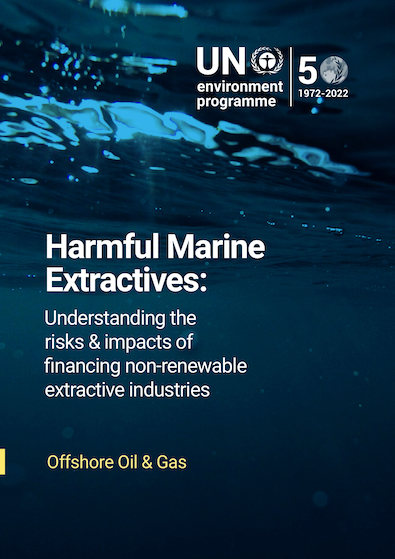
The science is clear, reaching “net zero” by 2050 will require a rapid, deep and sustained reduction in global greenhouse gas emissions and a fundamental shift away from fossil fuels. According to the Intergovernmental Panel on Climate Change (IPCC), no new oil and gas production projects can be sanctioned and existing production must be urgently replaced by sustainable renewable energy if the world is to limit global warming to 1.5°C as agreed at COP 26.
This briefing paper looks to the ocean, addressing the financial risks and environmental impacts associated with the exploration and production of offshore oil and gas. In addition to the environmental imperative of decarbonising the global economy, it takes into consideration the realm of financial, reputational, regulatory, operational and physical risks associated with these activities, and discusses how financial institutions should engage with and respond to this sector.
This practical, science-based resource has been designed for banks, insurers and investors wishing to understand the risks associated with offshore oil and gas activities and wanting to transition away from fossil fuels. It is part of a series of briefing papers on harmful marine extractives, together with papers on dredging & marine aggregate extraction and deep-sea mining.
More on Ocean Finance from UNEP FI
Turning the Tide: with recommendations on seafood, shipping, marine renewable energy, coastal tourism and ports.
Diving Deep: with recommendations on ocean pollution and coastal infrastructure
Recommended exclusions list: activities to exclude from financing due to their damaging impact on the ocean and high risk (derived from ‘Turning the Tide’).
Rising Tide: maps the ocean finance space and is a great introduction to those new to this topic.
Learn more
Visit UNEP FI’s Sustainable Blue Finance website
Discover the Sustainable Blue Economy Finance Principles
